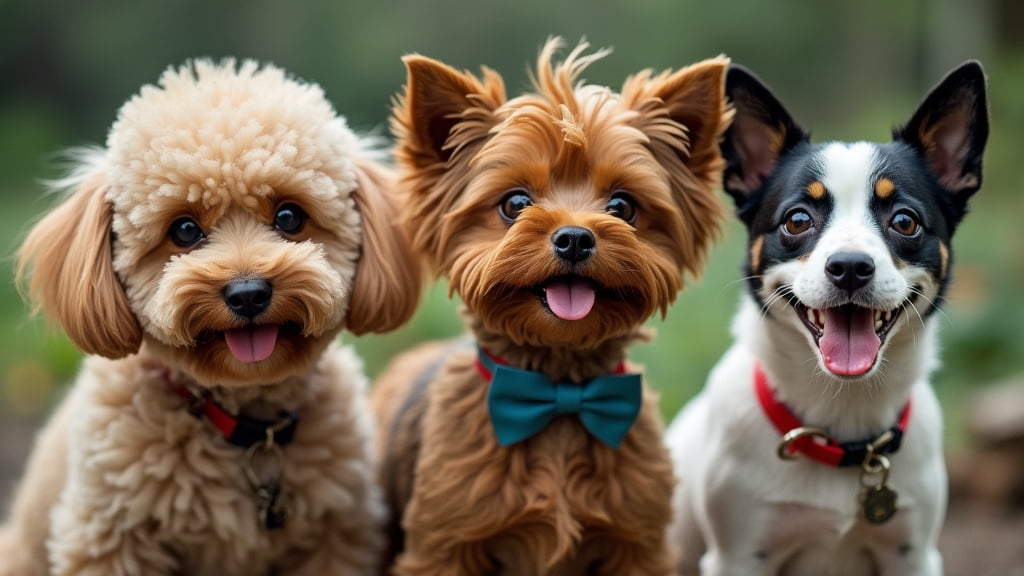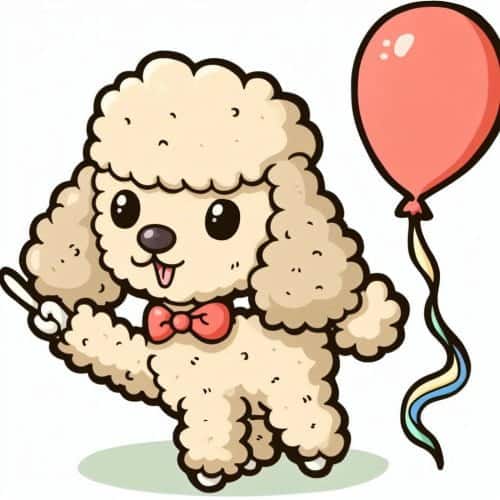Discover the Charm of Toy Dog Breeds: A Comprehensive Guide
Toy dog breeds offer a unique blend of companionship and elegance that can fit into a variety of living situations. From their small stature to their vibrant personalities, these dogs have won the hearts of pet owners around the world. This guide aims to explore the delightful world of toy dog breeds, providing insights into their characteristics, care needs, and how they can enrich your life.
Whether you live in a spacious house or a compact apartment, there’s a toy dog breed that can seamlessly adapt to your lifestyle. These breeds are not only manageable in size but also possess a charisma that belies their diminutive frames. Embarking on this journey will unveil the myriad ways toy dogs can bring joy, companionship, and a touch of luxury to your daily routine.
Introduction to the World of Toy Dog Breeds
The term “toy dog breeds” encompasses a wide variety of small dogs that are bred primarily for companionship. Despite their small size, these breeds carry a big personality and are known for their loyalty and affection towards their owners. They are perfectly suited for indoor living and make excellent pets for families, seniors, and those living in urban environments.
Toy dog breeds have a rich history, with many being the favoured companions of royalty and nobility. These breeds were often bred for specific purposes, such as lap warming or acting as living accessories to their affluent owners. Today, they continue to be popular choices for those seeking a pet with a regal or luxurious aura.
One of the most appealing aspects of toy dog breeds is their size. Weighing usually less than 15 pounds, these dogs are easy to manage, transport, and accommodate in smaller living spaces. Their size also makes them ideal travel companions, able to accompany their owners on various outings and adventures.
Despite their small stature, many toy breeds are surprisingly robust and adaptable. They are known for their spirited and playful nature, which can provide endless entertainment and companionship. However, their small size does require that owners be mindful of their physical limitations and protect them from potential harm.
Choosing a toy dog breed as a pet comes with the responsibility of understanding their specific needs, including dietary requirements, exercise, grooming, and socialization. With proper care, these delightful dogs can bring a significant amount of joy and fulfilment to their owners’ lives.
Key Characteristics of Toy Dog Breeds
Toy dog breeds are distinguished by their small size, affectionate nature, and adaptability to various living environments. They are known for being loyal companions that thrive on human interaction. Despite their diminutive size, many toy breeds are fearless and possess a spirited personality. They require regular grooming, socialization, and care tailored to their specific needs. Additionally, some toy breeds are considered hypoallergenic dogs, making them suitable for individuals with allergies.
Top Picks for Toy Dog Breeds
Our guide highlights some of the most beloved toy dog breeds, including the Yorkshire Terrier, Shih Tzu, and Poodle, among others. Each breed brings its unique charm and characteristics, ensuring that prospective pet owners can find the perfect match for their lifestyle.
Yorkshire Terrier
The Yorkshire Terrier, affectionately known as the Yorkie, is a highly affectionate companion that brings a big personality to its petite frame. Known for their beautiful, silky coats that require regular brushing, Yorkies are sturdy dogs that enjoy being part of the family.
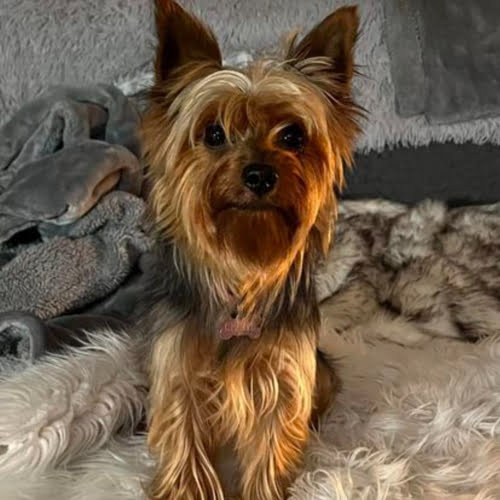
A Glimpse into the Yorkshire Terrier’s Life
Yorkshire Terriers, with their vivacious spirit and elegant appearance, make for loyal and loving companions. Despite their small size, they carry themselves with a confident, almost regal demeanour. Their long, luxurious coats require regular grooming to keep them looking their best. Yorkies form deep bonds with their family members, thriving on attention and interaction.
Shih Tzu
The Shih Tzu is a breed known for its friendly disposition and beautiful, flowing coat that demands regular dog grooming. These dogs are excellent companions, always ready to offer love and affection to their owners.
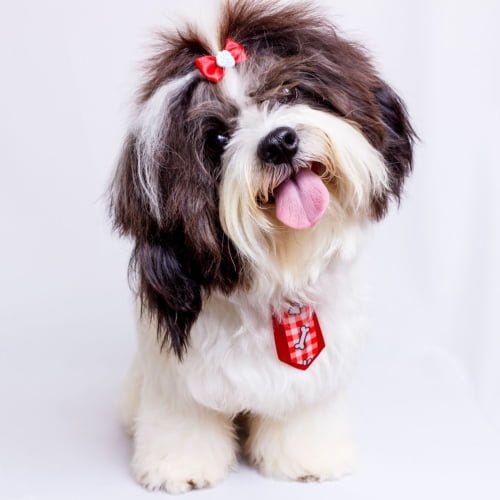
The Endearing Qualities of the Shih Tzu
Shih Tzus are renowned for their gentle nature and the ability to form strong attachments with their owners. Their luxurious coats come in various colors and require consistent grooming to maintain their majestic appearance. These dogs possess a calm and friendly temperament, making them ideal pets for families and individuals alike.
Cavalier King Charles Spaniel
The Cavalier King Charles Spaniel, with its silky coat and expressive eyes, epitomizes the ideal lap warmer. These affectionate dogs are not only highly intelligent and eager to please but are also renowned for being excellent family dogs.

Distinctive Traits of the Cavalier King Charles Spaniel
Cavalier King Charles Spaniels are the quintessential lap warmers, known for their gentle and affectionate nature. These highly intelligent dogs excel in a variety of activities that involve being close to their human companions. Their silky coats and loving eyes only add to their appeal, making them beloved members of many households.
Poodle
Poodles, especially the toy and miniature varieties, are distinguished by their intelligence and versatility. Toy Poodles, in particular, are adaptable, highly intelligent dogs that excel in obedience and agility.
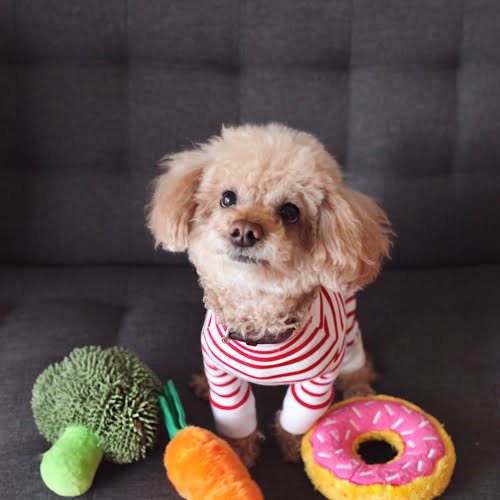
The Versatile and Intelligent Toy Poodle
Toy Poodles stand out for their keen intelligence and elegant appearance. Their curly coats are hypoallergenic, making them a popular choice for allergy sufferers. These dogs are not only smart but also highly trainable, excelling in various dog sports and activities. The combination of their intelligence, size, and hypoallergenic coat makes Toy Poodles an excellent choice for many families.
Chihuahua
Chihuahuas are known for their distinctive small size and big personality. They possess a bold and confident nature, often unaware of their diminutive stature.
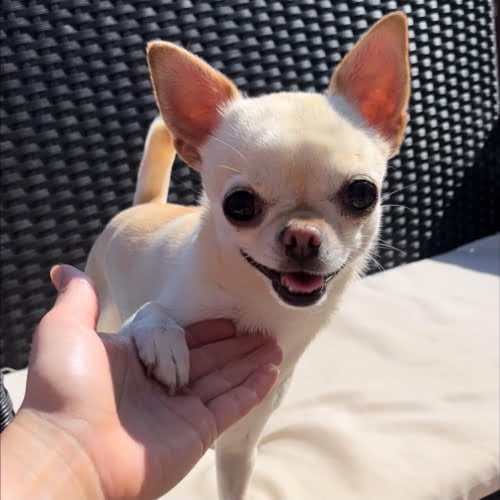
Unpacking the Personality of the Chihuahua
Chihuahuas may be small in size, but they have a personality that can fill a room. They are fiercely loyal to their owners, often forming a strong bond with a single person. Despite their size, they can be quite protective, making them excellent, albeit tiny, guard dogs. Their spirited nature and unique appearance make them a favourite among toy dog enthusiasts.
Bichon Frise
The Bichon Frise is a cheerful, small dog breed known for its white, fluffy coat and playful demeanour. They are excellent companions and adapt well to various living situations.
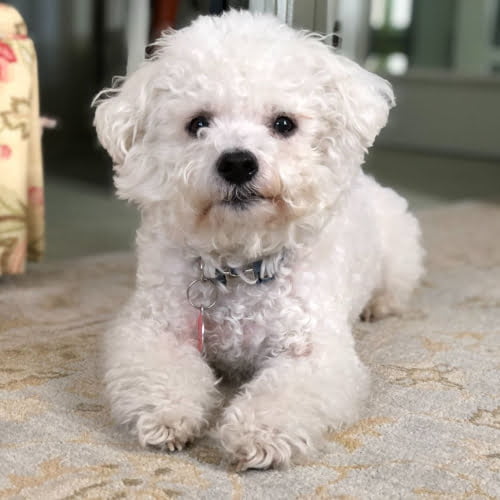
Discovering the Joyful Bichon Frise
The Bichon Frise is the epitome of joy and affection. This fluffy, white-coated breed is known for its cheerful disposition and love of play. They thrive on human interaction, making them excellent companions for families and individuals alike. Despite their small size, Bichons are hearty and adaptable, capable of fitting into various living situations with ease.
Italian Greyhound
The Italian Greyhound, with its slender build and graceful demeanour, embodies elegance. These small hounds are cherished for their affectionate nature and bond deeply with their owners. They are surprisingly hearty for their delicate appearance and enjoy both lounging and engaging in bursts of high-speed play. Their short coat requires minimal grooming, making them a low-maintenance companion that brings a touch of aristocracy to any home.
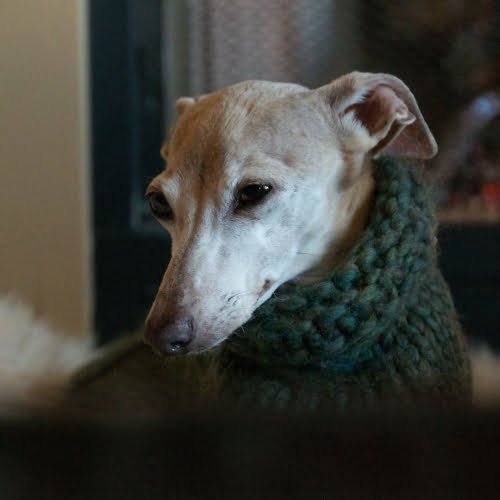
The Elegant and Graceful Italian Greyhound
Italian Greyhounds are the epitome of elegance and grace in the toy dog world. Their slender bodies and sleek coats contribute to their aristocratic appearance, yet they possess a playful and affectionate side that endears them to their families. These dogs crave warmth and companionship, often seeking out the cosiest spot in the house or the comfort of a lap. Despite their fragile appearance, they are agile and love to sprint, requiring secure spaces where they can safely unleash their speed.
Miniature Pinscher
Miniature Pinschers, with their fearless attitude and boundless energy, make spirited companions. Often mistaken for miniature Dobermans, these dogs have a distinct personality and style. Their confidence and self-assuredness stand out, as does their constant alertness and curiosity about the world around them.
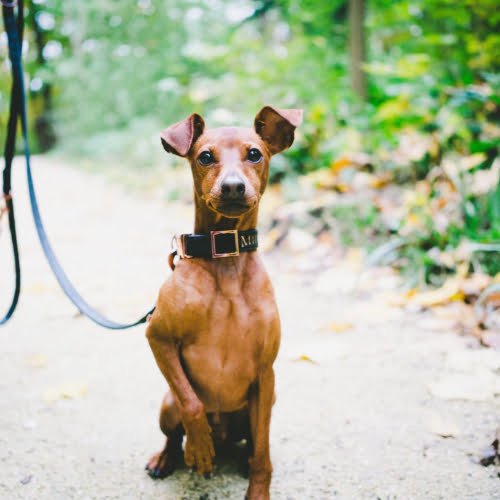
Insights into the Spirited Miniature Pinscher
Miniature Pinschers, or “Min Pins” as they are affectionately known, are a bundle of energy and sass. Despite their small size, they carry themselves with a king-of-the-hill swagger, always ready to explore and play. Their fearless nature and sharp intelligence make them delightful, if sometimes challenging, companions. Min Pins require consistent training and socialisation from an early age to channel their boundless energy positively.
Japanese Chin
The Japanese Chin is a breed that captivates with its elegant appearance and soulful eyes. They are known for their strong bond with human companionship, thriving on affection and interaction. Despite their aristocratic looks, Japanese Chins have a playful and sometimes mischievous personality.
The Exquisite Nature of the Japanese Chin
The Japanese Chin stands out for its exquisite, noble appearance and the deep, soulful eyes that seem to understand human emotions. This breed is not only beautiful but also possesses a charming and affectionate nature. They adore being close to their people, often performing amusing antics to draw attention. Their preference for a calm and serene environment makes them perfect pets for those seeking a gentle and loving companion.
Chinese Crested
Chinese Crested dogs are unique in appearance and temperament. They are known for their loving and playful nature, making them excellent lap dogs. Whether in the hairless variety or the powderpuff, these dogs crave human company and are happiest when snuggled up with their loved ones.
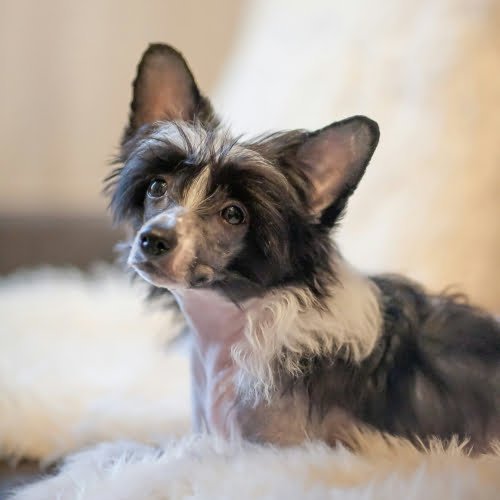
Unveiling the Unique Chinese Crested
The Chinese Crested dog, with its distinctive appearance, captures hearts. As quintessential lap dogs, they exhibit a loving and playful demeanour that endears them to their families. These dogs are known for their loyalty and affection, often forming a strong bond with a particular family member. Despite their delicate appearance, they are surprisingly robust and agile, enjoying playful interactions and gentle exercises.
Health and Care for Toy Dog Breeds
Toy dog breeds, with their diminutive size and charming personalities, require specific attention to their health and care needs. Regular exercise is crucial for maintaining their physical health and mental well-being, even if it’s just short walks or play sessions indoors. Their small size doesn’t diminish their need for engagement and activity. Alongside physical care, emotional well-being is paramount, as these breeds often form deep bonds with their owners and can be prone to separation anxiety if left alone for too long.
Dietary Considerations
When it comes to feeding toy dog breeds, their nutritional needs can be quite specific. Small breeds have faster metabolisms and therefore may require more frequent meals of smaller quantities. Choosing high-quality food that meets their energy requirements without leading to weight gain is essential. Care should also be taken to provide food that is easy for them to eat, considering their smaller mouths and teeth.
Exercise Needs and Limitations
Toy dog breeds, while needing regular exercise to stay healthy and happy, also have limitations. Due to their small stature, they can be more susceptible to injuries from rough play or jumps. Moreover, breeds with flat faces, such as Pugs and Bulldogs, may experience breathing difficulties, limiting their ability to tolerate strenuous exercise, especially in hot or humid weather. Therefore, it’s important to tailor exercise routines to the specific needs and capabilities of the breed.
Grooming Essentials
Grooming is an essential aspect of care for toy dog breeds, not only for aesthetic reasons but also for their health. Regular brushing can help prevent matting and skin issues, especially in breeds with longer coats. Dental care is equally important, as small breeds are prone to dental problems. Regular nail trimming and ear cleaning should also be part of their grooming routine, ensuring these small companions are as healthy as they are adorable.
Training and Socialisation Tips
Training and socialising toy dog breeds are crucial for their development and well-being. Despite their small size, they benefit greatly from learning basic commands and being exposed to different people, environments, and situations. Early socialisation helps prevent behavioural issues such as fearfulness or aggression towards strangers. Consistent, positive reinforcement methods work best for these breeds, fostering a love for learning and strengthening the bond between dog and owner.
Effective Training Techniques for Toy Breeds
Effective training techniques for toy dog breeds focus on gentle, consistent methods. Due to their sensitive nature, harsh corrections are often counterproductive and can lead to fearfulness. Positive reinforcement, such as treats and praise, encourages them to repeat desired behaviours. Short, engaging training sessions help keep their attention and make learning a fun and rewarding experience. Patience and understanding are key, as small breeds can be both quick learners and stubborn at times.
The Importance of Early Socialisation
Early socialisation is crucial for toy dog breeds, shaping their future interactions and preventing fearfulness. It involves exposing puppies to various people, animals, and environments in a safe and controlled manner. This early exposure helps them become well-adjusted adults, capable of handling different situations with confidence. Socialisation also reduces the likelihood of behavioural issues, making it an essential part of raising a happy and sociable toy dog.
The Perfect Living Environments for Toy Breeds
Toy dog breeds thrive in environments where they feel loved and secure. These tiny dogs do well in apartments and small homes, provided they have enough space to play and explore. A comfortable, quiet corner with their bed and toys can make a significant difference in their well-being. Ensuring the living space is safe and escape-proof is also crucial, as toy breeds can be surprisingly adventurous. The ideal environment for toy breeds is one that meets their physical and emotional needs.
Adapting Your Home for a Toy Dog
Creating a safe and welcoming environment for a toy dog involves some adjustments. Securing loose wires and ensuring small objects are out of reach can prevent accidents. Since toy breeds can be sensitive to cold, providing warm bedding and avoiding drafts is important. Additionally, setting up a designated area for feeding and another for toileting helps with their routine. Making these adaptations not only ensures their safety but also helps in their overall well-being.
The Role of Outdoor Spaces
While toy breeds are well-suited for indoor living, access to outdoor spaces is beneficial for their health and happiness. A secure, fenced area allows them to explore and play safely, offering essential physical exercise and mental stimulation. Balconies or small yards can be made safe with appropriate fencing. Regular, supervised outings in larger parks provide valuable socialisation opportunities, contributing to their physical and emotional development.
The Benefits of Choosing a Toy Dog Breed
Choosing a toy dog breed offers numerous benefits, particularly for apartment dwellers. Their small size makes them ideal for living spaces with limited square footage. Despite their diminutive stature, toy breeds are known for providing companionship and endless entertainment. They tend to form strong bonds with their human family, offering affection and loyalty. Additionally, many toy breeds require less exercise than larger dogs, making them perfect companions for those with a less active lifestyle.
Companionship and Bonding
Toy dog breeds excel in providing companionship and forming strong bonds with their owners. Their affectionate nature and desire for human interaction make them excellent companions. They are known to closely follow their owners, offering constant companionship. This bonding not only enhances the lives of the owners but also significantly benefits the emotional well-being of the dogs, making them feel loved and secure.
Suitability for Apartment Living
Toy dog breeds are particularly suited for apartment living due to their small size and adaptability. They can easily fit into smaller living spaces without feeling constrained. Most toy breeds have moderate energy levels and can be satisfied with indoor play and short walks. This makes them ideal for apartment dwellers who may not have access to large outdoor spaces. Additionally, their typically quiet nature helps in maintaining a peaceful living environment for both the dogs and their neighbours.
Challenges and Considerations
While toy dog breeds offer many joys, they also come with specific challenges and considerations. Due to their small size, they can be more prone to injuries and may require careful handling. Their diminutive stature also means they can be more sensitive to cold temperatures and may need extra care during colder months. Additionally, toy breeds can sometimes develop ‘small dog syndrome’, where they show aggressive or fearful behaviour. Understanding and addressing these challenges is essential for the well-being of toy breeds.
Health Concerns Specific to Toy Breeds
Toy dog breeds are susceptible to certain health issues due to their small size. Dental problems are common, as their tiny mouths can lead to overcrowded teeth. They may also face challenges with hypoglycaemia, or low blood sugar, and require regular feeding schedules. Additionally, their delicate bones make them more prone to injuries. Regular veterinary check-ups and a careful approach to their physical activities can help manage these health concerns, ensuring a healthy life for toy breeds.
Managing the Small Dog Syndrome
‘Small dog syndrome’ refers to a range of behavioural issues seen in toy breeds, often resulting from being pampered or not properly trained. Symptoms include excessive barking, aggression, and fearfulness. Addressing this requires consistent training and socialisation from an early age. Setting boundaries and providing structure can help mitigate these behaviours. Understanding that even small breeds require discipline and guidance is key to preventing ‘small dog syndrome’.
Adoption and Responsible Breeding
Choosing to adopt or purchase a toy dog breed comes with the responsibility of ensuring their well-being. Prospective owners should consider adoption from shelters, where many toy breeds await loving homes. If opting for a breeder, finding a reputable one who prioritises health and temperament is crucial. Responsible breeders conduct health screenings and provide a supportive start for the puppies. Whether through adoption or purchase, selecting a toy breed should be a decision made with care and consideration.
Finding a Reputable Breeder
Finding a reputable breeder is essential when choosing to bring a toy dog breed into your home. A good breeder will be transparent about the health and lineage of their dogs, offering insight into potential hereditary health issues. They should welcome questions, allow visits to see the puppies with their mother, and show a genuine interest in where their puppies are rehomed. Choosing a breeder committed to the well-being of their dogs ensures a healthy and happy start for your new companion.
Considering Adoption from Shelters
Adopting a toy dog breed from a shelter offers the chance to provide a loving home to a dog in need. Shelters house a variety of breeds, including many toy breeds looking for new families. Adoption not only gives these dogs a second chance but also opens up space for shelters to help more animals. Prospective owners can find joy in knowing they are making a positive difference in a dog’s life through adoption.
A Final Thought on Toy Dog Breeds
Toy dog breeds bring immense joy and companionship to their owners’ lives. Their small size and loving nature make them ideal companions for a wide range of people, including those living in apartments. While they come with specific needs and considerations, the rewards of owning a toy breed are immeasurable. Embracing the love and responsibility of caring for a toy dog can lead to a fulfilling and heart-warming experience for both the dog and the owner.
Embracing the Love and Responsibility
Embracing a toy dog breed into your life means accepting both the love they offer and the responsibility of their care. These cutest dog breeds require attention, proper training, and regular health check-ups to thrive. Understanding their unique needs and dedicating time to their well-being ensures a rewarding relationship. The joy of having a toy dog as a companion is a testament to the deep bond that can develop between humans and their four-legged friends, making every effort worthwhile.
